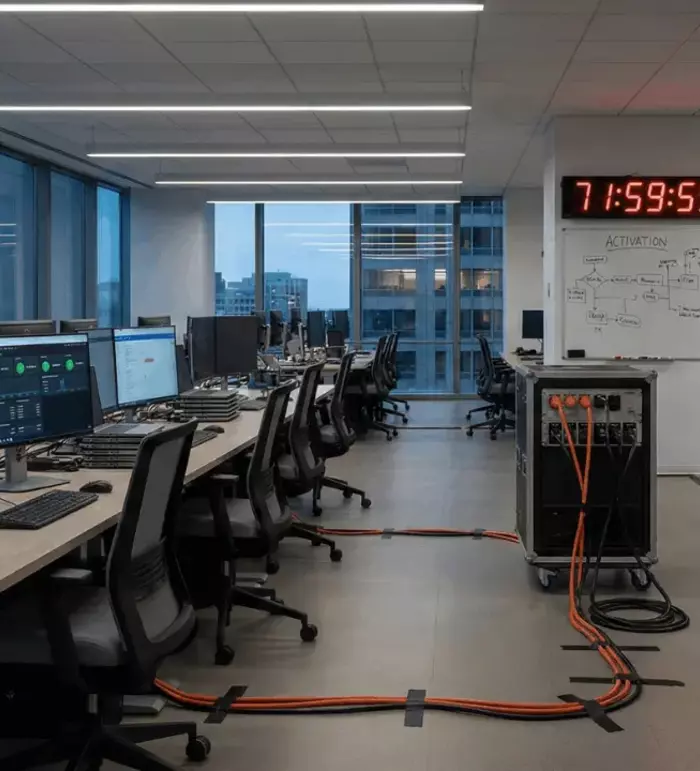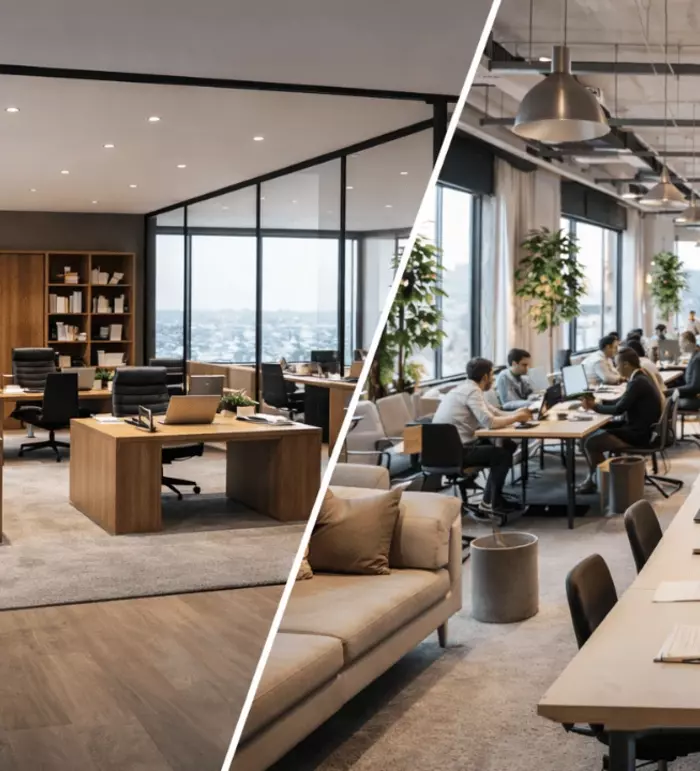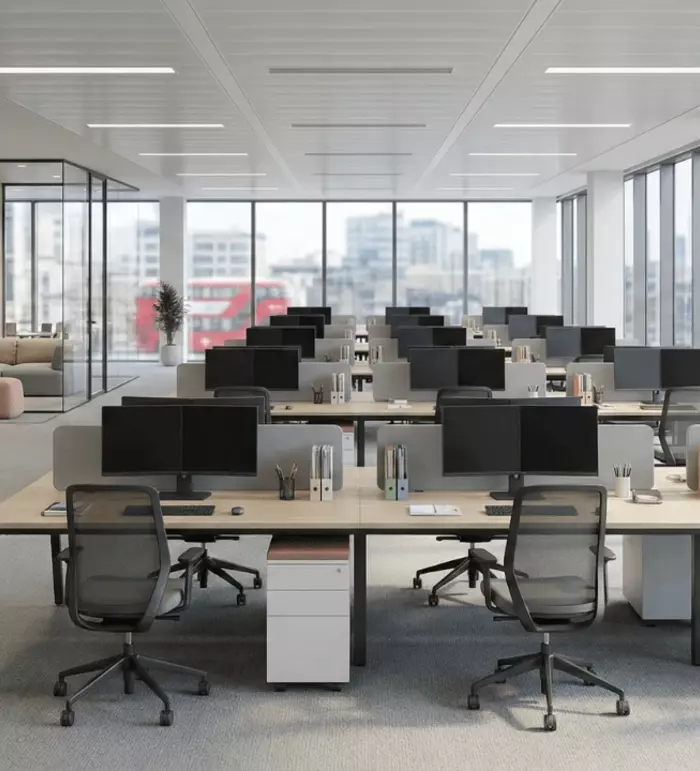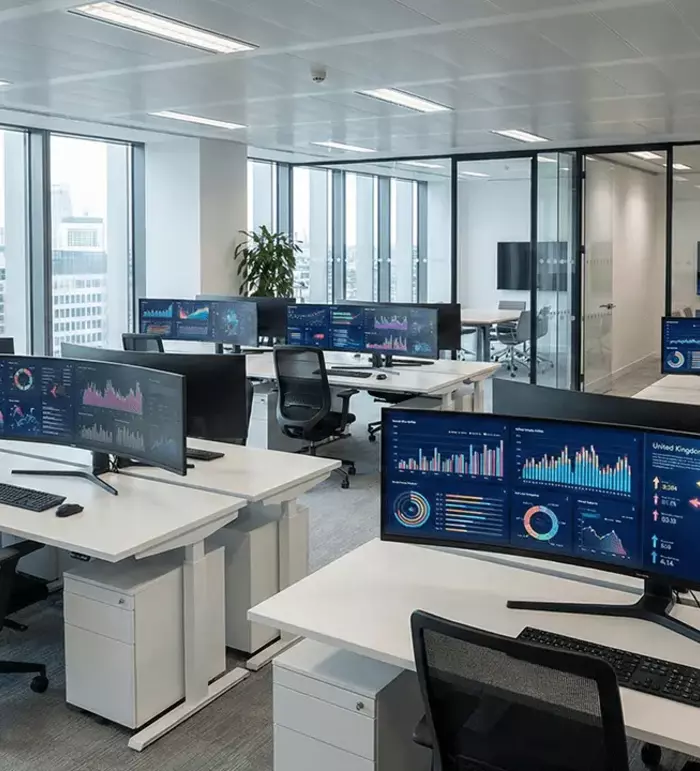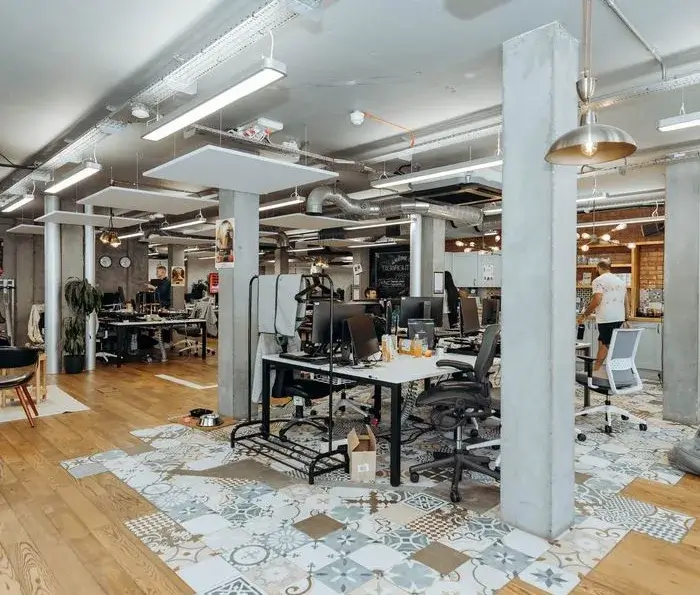In today's fast-paced and ever-evolving work environment, traditional office spaces are being reimagined to foster collaboration, creativity, and productivity. Enter co-working spaces – the game-changers that are revolutionising office dynamics. These shared workspaces have become a hotbed for innovation, bringing together a mix of individuals and organisations from diverse industries under one roof.
Gone are the days of isolated cubicles, co-working spaces thrive on the power of collaboration and community. From freelancers and startups to established companies seeking a fresh perspective, these spaces offer a unique environment that nurtures networking, ideas, and shared resources.
With flexible membership options, modern amenities, and a vibrant atmosphere, co-working spaces have emerged as the preferred choice for professionals looking to break free from traditional offices. So, are you ready to unlock the power of collaboration and embrace the future of work? Join us as we delve into the world of co-working spaces and explore the transformative impact they have on office dynamics.
Benefits of Co-Working Spaces
Co-working spaces offer a variety of benefits that traditional offices simply cannot match. First and foremost, flexibility is a key advantage of co-working spaces. Unlike traditional leases that require long-term commitments, co-working spaces offer various membership options, allowing professionals to choose the duration and level of access that suits their needs.
Whether you're a freelancer looking for a few days of workspace or a startup in need of a dedicated office, co-working spaces provide the flexibility to scale up or down as your business evolves. Additionally, co-working spaces often come equipped with modern amenities such as high-speed internet, meeting rooms, and communal areas, ensuring that you have everything you need to be productive. These shared spaces also eliminate the need for managing facilities and maintenance, allowing professionals to focus on what they do best – their work.
Another significant benefit of co-working spaces is the opportunity for networking and collaboration. In traditional offices, professionals often work in isolation, limiting their exposure to new ideas and perspectives. However, co-working spaces foster a sense of community and provide opportunities for professionals to connect and collaborate with like-minded individuals. The diverse mix of industries and backgrounds present in co-working spaces sparks creativity, encourages knowledge sharing, and opens doors to potential partnerships. Whether it's through organised networking events, casual conversations in the communal kitchen, or collaborative projects, co-working spaces create an environment that nurtures professional growth and expands professional networks.

Coworking Space
Lastly, cost-effectiveness is another advantage of co-working spaces. Renting a traditional office space can be a significant financial burden, especially for startups or freelancers just starting out. Co-working spaces offer a more affordable alternative, allowing professionals to access high-quality workspace without the hefty price tag. Additionally, shared resources such as printers, office equipment, and even reception services are often included in the membership, further reducing costs. By leveraging the shared resources and amenities available in co-working spaces, professionals can allocate their budget towards other business essentials.
In summary, the benefits of co-working spaces are undeniable. The flexibility, networking opportunities, and cost-effectiveness they offer make them an attractive option for professionals seeking a vibrant and collaborative work environment. Whether you're a freelancer looking for a sense of community, a startup searching for new connections, or an established company wanting to foster innovation, co-working spaces provide the ideal setting to unlock the power of collaboration and revolutionise office dynamics.

Types of Co-Working Spaces:
Co-working spaces come in various shapes and sizes, catering to the diverse needs of professionals across different industries. Understanding the different types of co-working spaces can help you choose the one that aligns with your goals and work style.
General Co-Working Spaces: These are the most common type of co-working spaces, offering a shared workspace for professionals from various backgrounds. They provide a versatile environment that suits a wide range of industries and work styles. General co-working spaces often have a mix of open workstations, private offices, meeting rooms, and communal areas. This variety allows professionals to choose the workspace that best suits their needs, whether it's a quiet corner for focused work or a collaborative area for brainstorming sessions.
Industry-Specific Co-Working Spaces: These co-working spaces cater to professionals within a specific industry or niche. For example, there are co-working spaces dedicated to tech startups, creative industries, or even healthcare professionals. Industry-specific co-working spaces offer specialised resources and amenities tailored to the unique needs of professionals in that field. This targeted approach fosters collaboration and knowledge sharing among like-minded individuals, creating a supportive and collaborative community.
Choosing the right type of co-working space depends on your industry, work style, and specific requirements. Whether you prefer a general co-working space that offers flexibility or an industry-specific space that fosters niche collaboration, there's a co-working space out there that can unlock your potential and revolutionise your office dynamics.

State Of The Market: Q2 London Report
Co-Working Spaces vs. Traditional Offices:
The shift from traditional offices to co-working spaces has sparked a debate on which option is better for professionals. While both have their strengths and weaknesses, co-working spaces offer unique advantages that make them a popular choice for many. Let's explore how co-working spaces compare to traditional offices in different aspects.
Flexibility: Traditional offices often require long-term leases with fixed terms, making it challenging for professionals to adapt to changing business needs. Co-working spaces, on the other hand, offer flexible membership options, allowing professionals to choose the duration and level of access that suits their requirements. Whether you need a single day of workspace or a dedicated office for a year, co-working spaces provide the flexibility to scale up or down as your business evolves.
Cost: Renting and managing a traditional office space can be a significant financial burden, especially for startups or freelancers just starting out. Co-working spaces offer a more cost-effective alternative, providing access to high-quality workspace without the hefty price tag. Shared resources and amenities, such as printers, office equipment, and reception services, are often included in the membership, further reducing costs. By leveraging the shared resources available in co-working spaces, professionals can allocate their budget towards other business essentials.
Networking and Collaboration: Traditional offices often lack opportunities for networking and collaboration, as professionals tend to work in isolation within their organisations. Co-working spaces, on the other hand, foster a sense of community and provide a number of networking/collaboration opportunities.
📣 Join The Flex Hub Community 📣
Join The Flex Hub and gain access to exclusive resources, expert insights, industry news and more.
Don’t miss out, receive notifications when we’ve posted by clicking here.



